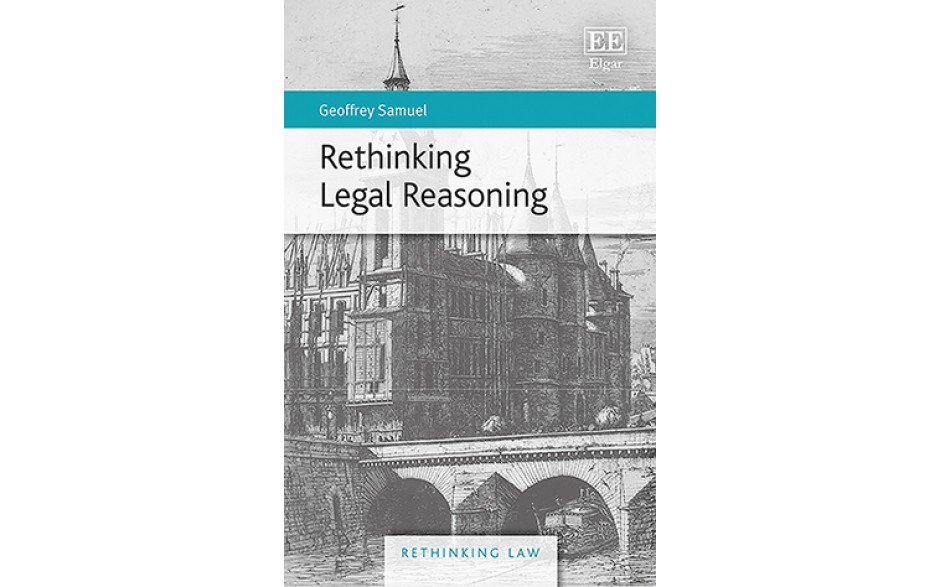A new book by Kent Law School Professor Geoffrey Samuel re-examines legal reasoning through the context of legal knowledge (or epistemology).
Rethinking Legal Reasoning, published by Edward Elgar as part of their Rethinking Law series, offers new insights into the nature of legal reasoning.
In the book’s introduction, Professor Samuel defines legal reasoning as “the reasoning used by lawyers to solve a legal problem, to advise a client, to justify a legal decision and (or) to comment on a legal text or case.” It’s also the reasoning attached to the application of legal knowledge to specific problems. He goes on to distinguish legal reasoning from legal argumentation saying that “one has the aim of both arriving at and justifying a decision while the other aims to convince.”
Rather than offer a new theory, Professor Samuel’s book aims to examine historical perspectives on legal reasoning and suggest epistemological and ontological frameworks to help readers rethink it. The book, for example, compares legal reasoning to medical reasoning and to reasoning in film studies. It also suggests consideration of Vaihinger’s ‘as if’ fiction theory and the importance of the notion of an interest as a way of understanding and rethinking legal reasoning.
Whilst introducing new topics, this latest book shares certain topics and approaches with Professor Samuel’s earlier work in A Short Introduction to Judging and to Legal Reasoning (Edward Elgar, 2016).
Professor Samuel is Professor of Law at Kent and Professor affilié, École de droit, Sciences-Po in Paris. He holds doctoral degrees from the Universities of Cambridge, Maastricht and Nancy 2 (honoris causa). He has also held many visiting posts in France, Belgium and Switzerland and continues to visit at Aix-Marseille Université and at the University of Rome Tor Vergata.
He is the author of many books, chapters and articles on contract, tort, remedies, legal reasoning, comparative law theory and method and legal epistemology. A collection of essays honouring Professor Samuel and edited by Dr Simone Glanert from Kent Law School, was released by Wildy, Simmonds and Hill Publishing in April.

